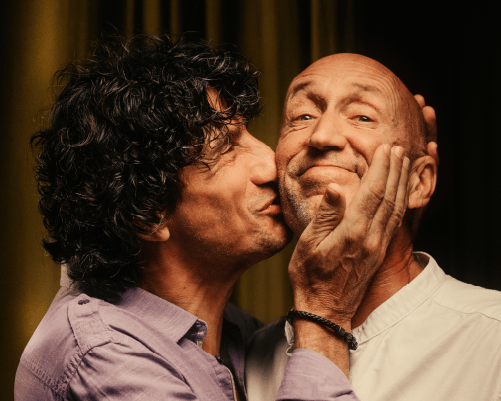Teatru Malta, Malta’s national theatre company, is back with a vibrant and boundary-pushing lineup of events for the Spring/Summer 2023 season. Now that they have settled down in their new offices on the MCAST Campus in Paola, they’re ready to continue to shake things up with their Spring/Summer programme for 2023
First up, Teatru Malta is collaborating with Theatre Anon. and author and poet Immanuel Mifsud for a promenade performance called “Dik Is-Siġra f’Nofs ta’ Triq” this June at the MCAST campus in Paola. This show which will be premiering at the Malta International Arts Festival is a performance that explores the tensions between progress and tradition through fantastical characters and magical realism and features over 20 performers, acrobatics, memorable songs, and magical visuals.
During this leg of the season, through a collaboration with KorMalta and Malta National Park, Teatru Malta is putting on a show for our furry friends and their owners called “Fi Do”. Composed by Karl Fiorini and complemented by the voices of Malta’s national choir, “Fi Do” will be happening this July at the Malta National Park in Ta’ Qali, this show will be directed by world-renowned theatre company Manifesto Poetico who will be entertaining audiences through the art of mime.
For EuroPride this September, Teatru Malta will be presenting “AURA – Musical In the Dark”, a co-production with EuroPride and Esplora which will take place at Esplora’s magical planetarium. In this revamped musical in the dark experience, Marta Vella and Vikesh Godwhani join forces yet again by writing yet another feast for the senses that will take you on a journey to Aura, a magical island where everything is possible. And this time, the music for this performance is composed by none other than award winning composer Luke Saydon.
Teatru Malta is also proud to announce a rehashed Atelier Francis Ebejer in collaboration with Teatru Manoel and its masterclass programme, il-Klassi tas-Surmast. Atelier Francis Ebejer is led by experienced theatre professionals and offers a supportive environment where artists can experiment and push their boundaries. The masterclass programme, led by international theatre experts Rimini Protokoll, is geared towards more experienced theatre artists who are looking to hone their craft and refine their skills and deepen their understanding of theatre.
Teatru Malta is also excited to announce its Associate Company Programme with Arts Council Malta, which aims to offer local ensemble-based theatre companies something they have been craving for a long-time, medium-term funding for space.
But wait, there’s more! Teatru Malta is teaming up with tech giant GO to bring some of its top musical theatre productions to your screens via the TOKIS platform, meaning you can enjoy at least some of the magic of theatre from the comfort of your own home. And if you’re into podcasts, you’re gonna love Teatru Redifjuxin, where they tackle current issues in the theatre industry.
At the end of Summer and just before they will launch their Autumn/Winter programme, Teatru Malta will also be taking part at Pride March for EuroPride with their “March Out of the Closet”, where artists, actors and creatives can rock some of the company’s most iconic costumes at this year’s EuroPride March on the 16th of September for free.
Make sure to have a look at the full programme to see what Teatru Malta has prepared for the coming months below.
Teatru Malta is supported by Arts Council Malta.
Photo by Elisa Von Brockdorff.

